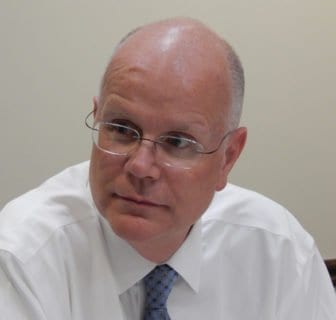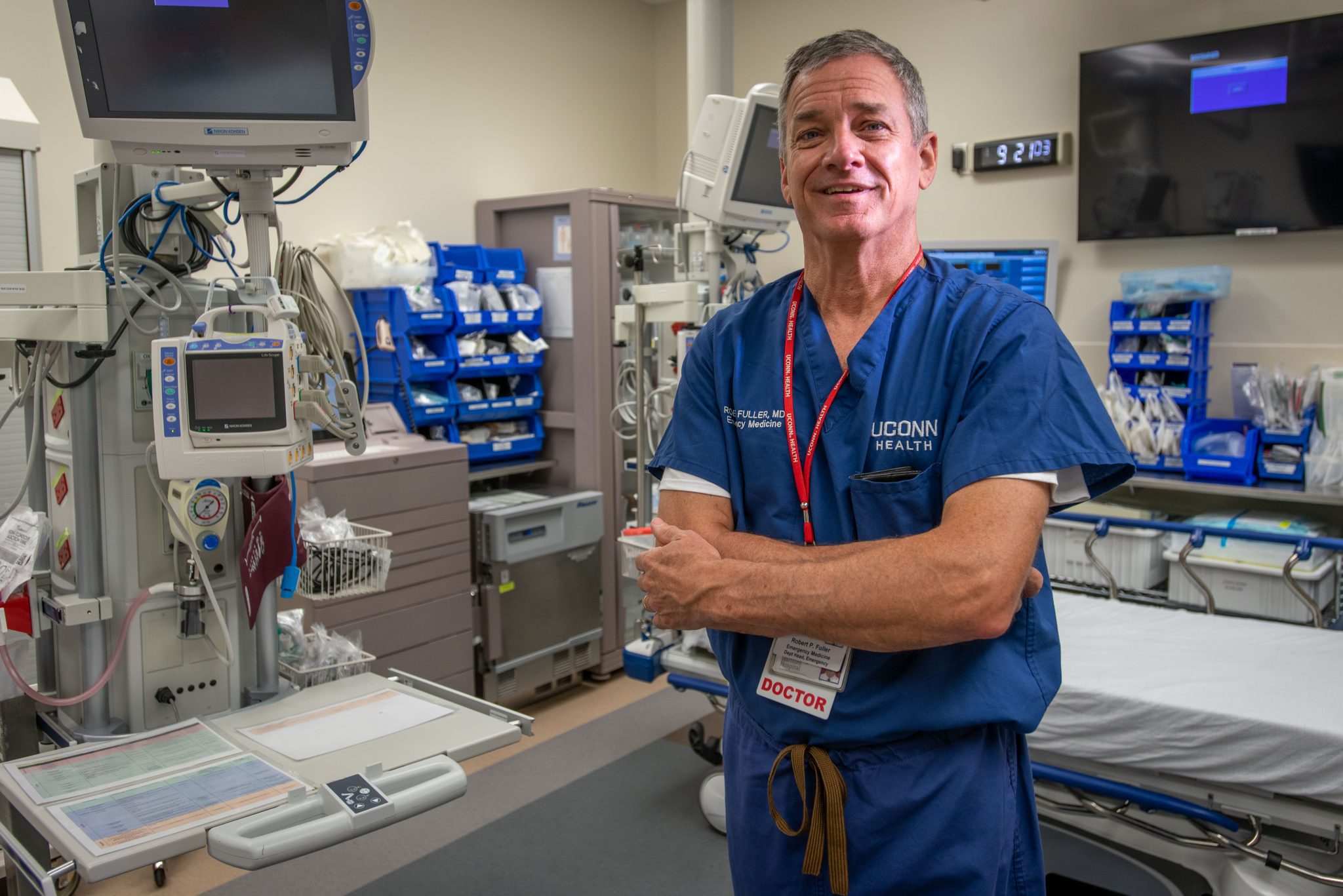Lembo Urges Partnership for Connecticut to Follow All Disclosure, Ethics Rules

Audio By Carbonatix

Comptroller Kevin P. Lembo. Courtesy of CTMirror.org
The public-private partnership spearheaded by Ray Dalio’s philanthropic foundation is great news, but transparency is important, the state’s comptroller says.
By Keith M. Phaneuf, CTMirror.org
Connecticut’s chief fiscal watchdog is calling for officials overseeing the investment of hundreds of millions of taxpayer and philanthropic dollars in low-performing public schools to adhere to the spirit of all disclosure and ethics laws.
While Comptroller Kevin P. Lembo called the unprecedented public-private partnership, spearheaded by hedge fund giant Ray Dalio’s philanthropic foundation, “great news” for Connecticut, he warned that transparency is vital to the success of the endeavor.
Providing regular public access not only to the results of these investments – but also to the decision-making process behind them – can only strengthen public support and encourage more private contributions, he said.
“At the end of the day I support the mission and I am personally grateful,” Lembo told the CT Mirror. “This is a big, positive thing. But instead of being able to celebrate that, they’ve pulled a pall of secrecy over this unnecessarily.”
Lembo was referring to the “Partnership for Connecticut,” a nonprofit, non-stock corporation lawmakers enacted in June, implementing a proposal negotiated by Gov. Ned Lamont’s administration and Dalio Philanthropies, the foundation established by Dalio and his wife, Barbara.
In an unprecedented move, state officials exempted the partnership from state disclosure and ethics rules.
In an equally unparalleled move, the Dalios pledged to donate $100 million to Connecticut’s schools – and to help raise another $100 million from other philanthropic groups – provided the state put up $100 million as well.
The partnership will oversee this $200 million-to-$300 million venture, led by a 13-member governing board that includes Lamont, three of his appointees, four top legislative leaders, and four nominees from Dalio Philanthropies. The final member, the board’s president, will be selected by the other 12 members.
“The board and staff will actively engage with community members and provide information to the general public through the website, public reports, and in-person collaborations,” Dalio Philanthropies wrote in a statement last week. “This information will detail how funds are being spent, what progress is being made, and what lessons are being learned for the benefit of Connecticut.”
Lamont’s communications director, Maribel La Luz, said the administration anticipates that numerous reports and other updates on the partnership will be provided regularly.
“Information about the partnership and its activities will be made available to the public just as the foundation has done with their work in the past,” she said.
The comptroller, who’s spent much of his 8 1/2 years in office expanding access to public salaries, pensions, contracts awards, and other fiscal information, praised all participants for guaranteeing frequent reports on schools and programs that are receiving funding, and the results of those investments.
“Those are easier to measure in this context, and that’s comforting,” Lembo said. “It’s what went into all of those expenditures, that’s at the heart of the concerns we’ve heard.”
Some legislators objected strongly to the disclosure exemptions. Neither the foundation nor any state officials serving on the partnership board would commit to open the meetings to the public. The first meeting has not been scheduled yet but is expected to occur later this summer.
And while reports on outcomes are important, Lembo said it’s equally important for taxpayers to hear the discussions about those decisions. For example, why did one public school receive funding and another did not?
“Because of the level of public investment, understanding how the board did what it did, why it did what it did, is critical,” he said. And given that funds are being spent on public schools, he added, the need for transparency is magnified.
But advocates for the partnership say the ongoing struggles of Connecticut’s impoverished districts are exactly why a different approach is needed. Without a dynamic in which officials can discuss ideas without fear of public criticism, they say, nothing will change.
Proponents also say the Dalios have an established track record of using philanthropy to produce major improvements in Connecticut schools. The foundation already has funded various programs in public schools in recent years in East Hartford, Meriden, New Haven and Hartford.
“Again, this is great news for Connecticut,” Lembo said. “And there is a balance here that is achievable.”
The comptroller said it’s not crucial that legislators immediately amend the law exempting the foundation from disclosure and ethics rules, but if the partnership can achieve “a reasonable level of disclosure” there will be greater public confidence and comfort.
“And the sooner they do that, the better. Then everyone can focus on the big issue: How can we make things better for kids?”
Reprinted with permission of The Connecticut Mirror. The author can be reached at [email protected].
Like what you see here? Click here to subscribe to We-Ha’s newsletter so you’ll always be in the know about what’s happening in West Hartford!



